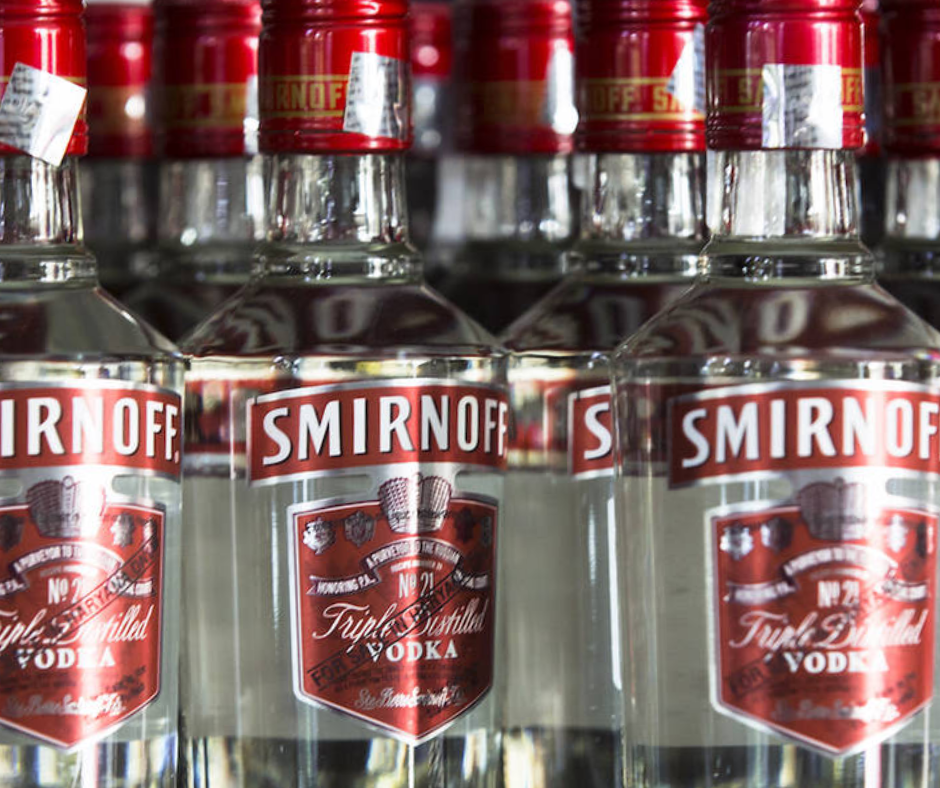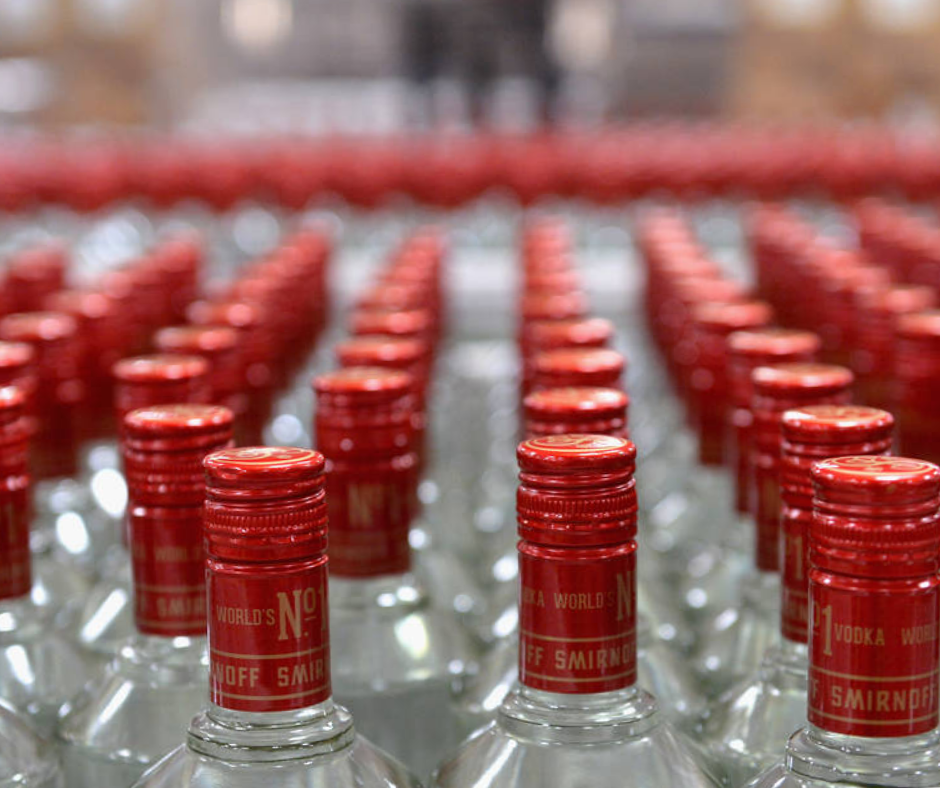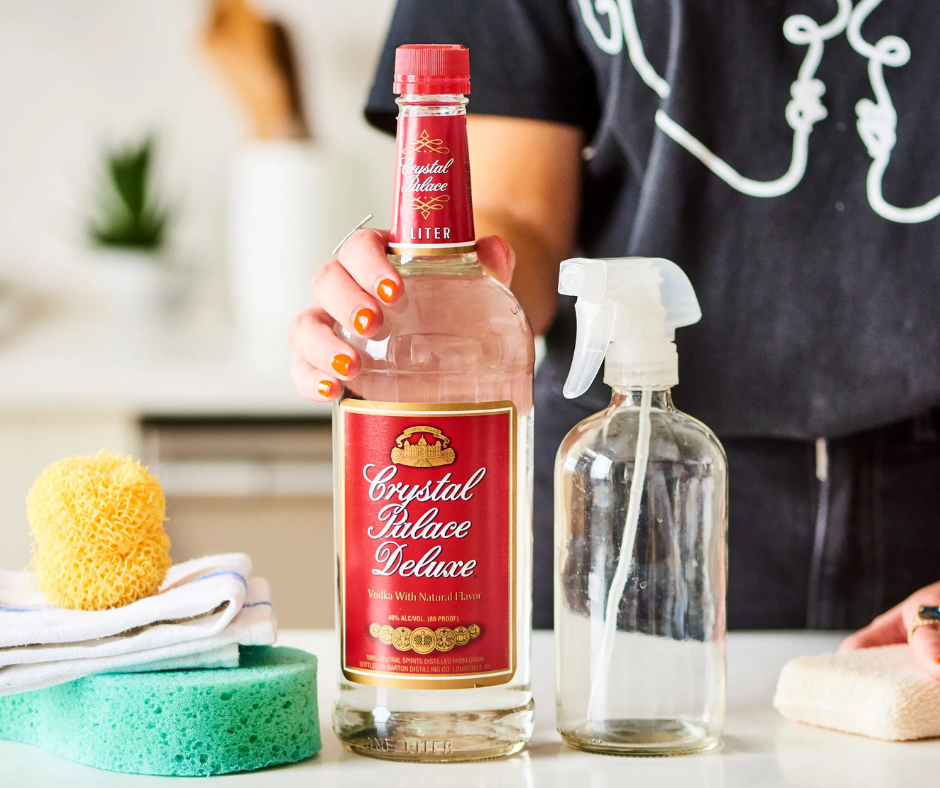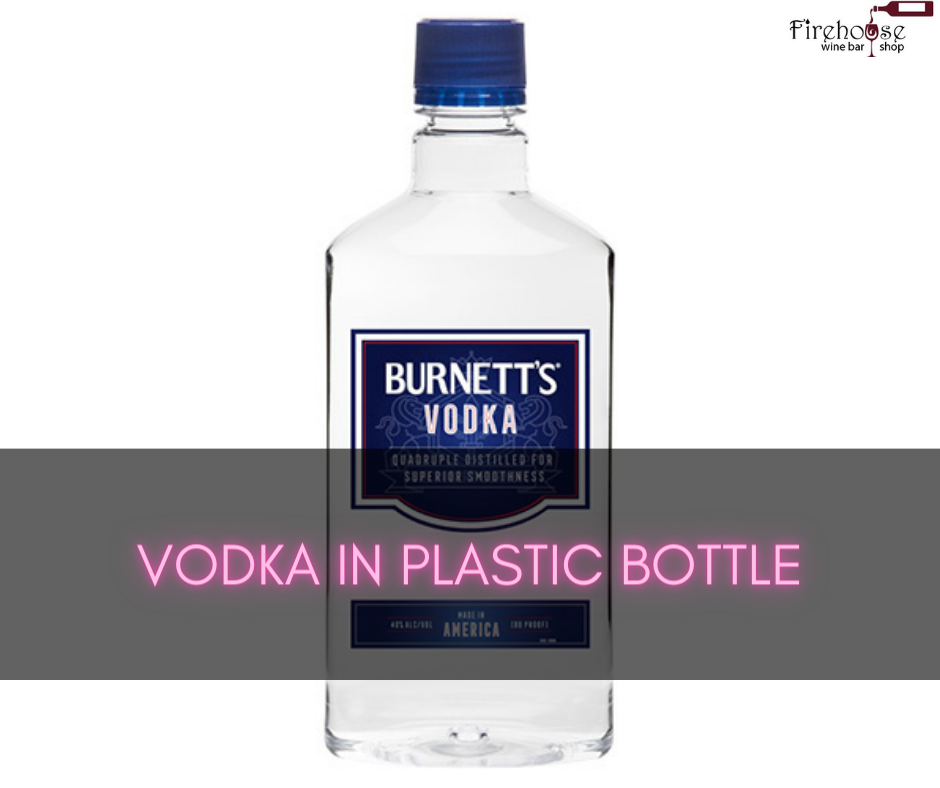Introduction
In the ever-evolving world of product packaging, plastic bottles have become popular for manufacturers across various industries. One unexpected sector that has embraced this trend is the spirits industry, particularly vodka brands. This shift from traditional glass bottles to plastic containers has raised questions among consumers about the convenience and potential compromises involved. This article will delve into the debate surrounding vodka in plastic bottles, analyzing its advantages and disadvantages.
Definition And History Of Vodka
Vodka is a distilled spirit known for its clear and colorless appearance and its high alcoholic content, ranging from 40 to 55 percent. Historically, vodka has been associated with traditional glass bottles, adding a touch of elegance and sophistication to the drinking experience. However, as industries strive for innovation and convenience, vodka producers have explored alternative packaging options, including plastic bottles.
Advantages And Disadvantages Of Using Plastic Bottles
One of the most significant advantages of using plastic bottles for vodka is their lightweight and shatterproof nature. Plastic containers are far more durable than glass, reducing the risk of breakage during transportation and handling. This makes plastic bottles convenient for consumers, especially those who enjoy outdoor activities or frequent events where glass might be prohibited.
Additionally, plastic bottles are more cost-effective and environmentally friendly than their glass counterparts. They require less energy to produce and transport, reducing carbon emissions. Moreover, plastic bottles can be easily recycled, further contributing to sustainability efforts.
However, the use of plastic bottles for vodka does come with potential disadvantages. Some consumers argue that plastic containers can alter the spirit’s taste, giving it a slight plastic aftertaste. Another concern is the perception of cheapness and lower quality associated with plastic packaging. Glass bottles have long been associated with premium products, and the shift to plastic might undermine the image and prestige of certain vodka brands.
In conclusion, using plastic bottles for vodka presents a combination of convenience and potential compromises. While plastic offers advantages such as durability and cost-effectiveness, it raises concerns about taste alteration and brand perception. Ultimately, the decision to use plastic bottles will depend on the brand’s target audience and preferences. As the industry continues to evolve, it will be interesting to see how vodka producers balance practicality and maintaining the perception of quality.

The Convenience Of Vodka In Plastic Bottles
Ease Of Handling And Transportation
One of the main advantages of using plastic bottles for vodka is the ease of handling and transportation. Unlike glass bottles, plastic containers are lightweight and shatterproof, making them much easier to carry and transport. This is particularly beneficial for individuals who frequently travel or enjoy outdoor activities. Whether it’s a picnic, a camping trip, or a beach day, plastic bottles are less likely to break, ensuring consumers can enjoy their vodka without any worries. Furthermore, the risk of breakage during transportation is significantly reduced, preventing potential product rejects and minimizing losses for vodka producers.
Practicality For Outdoor Events And Parties
Plastic bottles offer practicality for outdoor events and parties where glass containers might be prohibited. Many venues, such as stadiums or concert venues, do not allow glass bottles due to safety concerns. In these situations, having vodka in a plastic bottle allows consumers to bring and enjoy their favorite spirit without hassle. Plastic bottles are also more convenient for large gatherings or parties with a higher risk of accidents or breakages. Plastic’s lightweight and durable nature makes serving and distributing the vodka easier, providing a hassle-free experience for both the hosts and guests.
Overall, vodka in plastic bottles provides a convenient solution for consumers and producers. The lightweight and shatterproof nature of plastic bottles makes them easy to handle and transport, reducing the risk of breakage and product rejection. Furthermore, plastic bottles offer practicality for outdoor events and parties where glass containers might be prohibited.
However, it is important to note that deciding to use plastic bottles for vodka should consider potential compromises, such as concerns about taste alteration and brand perception. As the industry continues to innovate, consumers and vodka producers must balance convenience and maintaining the perception of quality.
The Compromises Of Vodka In Plastic Bottles
Impact On The Environment
While vodka in plastic bottles may offer convenience, it comes at a cost to the environment. Plastic pollution is a growing concern, with millions of tons of plastic waste ending up in oceans and landfills yearly. By choosing plastic bottles, vodka producers contribute to this problem. Plastic takes hundreds of years to decompose, and as it breaks down, it releases harmful microplastics that can contaminate water sources and harm wildlife. The production of plastic bottles also requires the use of fossil fuels and contributes to greenhouse gas emissions.
Potential Chemical Leaching And Taste Alteration
Another compromise of vodka in plastic bottles is the potential for chemical leaching. Plastic bottles may contain harmful chemicals, such as bisphenol A (BPA), that can leach into the vodka over time. These chemicals have been linked to various health issues, including hormone disruption and reproductive problems. Additionally, the taste of vodka can be altered when stored in plastic bottles, as plastic allows oxygen to permeate through the material, potentially affecting the flavor and quality of the spirit.
While plastic bottles offer convenience and practicality, weighing these benefits against the potential compromises is essential. Vodka producers must consider the long-term effects on the environment and the potential health risks of plastic bottles. Conversely, consumers should be aware of the trade-offs and consider sustainable alternatives, such as glass or aluminum packaging.
Ultimately, both vodka producers and consumers must prioritize sustainability and responsible consumption. By exploring alternative packaging options, such as biodegradable or recycled plastic bottles, the industry can mitigate the environmental impact of plastic pollution. Additionally, investing in research and innovation can help develop convenient and eco-friendly materials without compromising the taste and quality of vodka.

Health And Safety Concerns
Possible Health Risks Associated With Plastic Bottle Packaging
Regarding vodka in plastic bottles, potential health risks need to be considered. One concern is the leaching of harmful chemicals from the plastic into the vodka over time. Plastic bottles may contain substances like bisphenol A (BPA), which has been linked to various health issues, including hormone disruption and reproductive problems. These chemicals can migrate from the bottle into the liquid, especially when exposed to heat or prolonged storage.
While the U.S. Food and Drug Administration (FDA) regulates the safety of plastic packaging materials, including those used for bottled beverages, concerns still exist. While short- or long-term health effects from daily exposure to these substances through migration are unlikely to occur, consumers must be aware of and understand the potential risks.
Safety Of Plastic Bottle Recycling And Disposal
Another aspect to consider is the safety of plastic bottle recycling and disposal. While plastic bottles are recyclable, not all bottles are properly recycled. Improper disposal practices, such as littering or incorrect recycling methods, can result in plastic waste ending in oceans and landfills. This contributes to the growing plastic pollution problem, which has detrimental environmental effects.
Furthermore, the production of plastic bottles requires the use of fossil fuels and contributes to greenhouse gas emissions. This aspect has raised concerns regarding sustainability and the ecological impact of using plastic packaging for vodka.
Vodka producers and consumers need to prioritize sustainability and responsible consumption. Exploring alternative packaging options, such as glass or aluminum, can significantly reduce the environmental impact. These materials are more easily recyclable and have less potential for chemical leaching. By making conscious choices regarding packaging, the vodka industry can contribute to a more sustainable and environmentally friendly future.
In conclusion, while plastic bottle packaging offers convenience, there are potential compromises concerning health risks and environmental impact. Both producers and consumers must consider these factors and make informed choices for the sake of their health and the planet.
Alternatives To Plastic Bottles
Glass Bottle Options And Benefits
When it comes to packaging vodka, one popular alternative to plastic bottles is glass. Glass bottles have long been used for alcoholic beverages, particularly premium spirits, and offer numerous benefits. First and foremost, glass bottles have an unlimited shelf life, ensuring that the quality of the vodka remains intact even after long storage periods. This is especially important for distillers who want to maintain the integrity and flavor of their products.
In addition to their practical advantages, glass bottles have a sleek and sophisticated appearance. Many liquor brands use this by incorporating unique designs and branding elements on their bottles. This enhances the product’s visual appeal and helps create a distinct and memorable brand image.
Glass bottles are also more environmentally friendly than plastic. Glass is 100% recyclable and can be recycled infinitely without losing quality. By choosing glass packaging, vodka producers can contribute to reducing plastic waste and the overall environmental impact of their industry.
Other Eco-friendly Packaging Materials
While glass bottles are popular for packaging vodka, other eco-friendly alternatives are also available. One such option is aluminum cans. Aluminum is lightweight, easily recyclable, and has a lower carbon footprint than plastic. It is also more durable than glass, making it a convenient choice for outdoor events or situations where breakage is a concern.
Another emerging option is plant-based bioplastics from renewable resources such as corn, sugarcane, or cellulose. These biodegradable materials offer a more sustainable solution compared to traditional plastics. However, it is important to note that the availability and feasibility of bioplastics for vodka packaging may vary depending on factors such as cost and compatibility with alcoholic beverages.
Overall, while plastic bottles may offer convenience in terms of durability and cost-effectiveness, they come with potential compromises regarding health risks and environmental impact. Vodka producers can prioritize health, sustainability, and responsible consumption by exploring alternatives such as glass bottles, aluminum cans, or bioplastics. Making informed choices about packaging materials can benefit consumers and the environment and contribute to a more conscious and ethical vodka industry.

Consumer Perception And Market Trends
Public Opinion On Vodka In Plastic Bottles
There is a longstanding association between vodka and glass bottles, with glass being perceived as the more prestigious and indicative of higher product quality. As a result, some consumers may be hesitant regarding vodka brands adopting plastic bottles. These consumers may view plastic packaging as a compromise on the quality and authenticity of the vodka.
However, it is important to note that public opinion on vodka in plastic bottles is not universally negative. There is a growing segment of consumers who prioritize convenience and affordability over the material of the packaging. These consumers appreciate plastic bottles’ lightweight and durable nature, which allows for easier portability and reduced risk of breakage during transport or outdoor events.
Emerging Market Trends And Preferences
The market trends regarding vodka packaging have been shifting in recent years. Advancements in packaging technology have enabled the production of plastic bottles that can effectively preserve the quality and taste of vodka, minimizing any negative perceptions associated with plastic packaging.
Moreover, environmental considerations are increasingly influencing consumer preferences. Many consumers are now more conscious of the environmental impact of their choices and are actively seeking eco-friendly alternatives. This has prompted vodka producers to explore sustainable packaging options, such as glass bottles or plant-based bioplastics, to cater to this environmentally conscious consumer segment.
To cater to diverse consumer preferences, vodka brands adopting plastic bottles need to overcome the perceptions of lower quality by effectively communicating the quality and authenticity of their products. This can be achieved through transparent labeling, highlighting high-quality ingredients, sustainable production processes, and rigorous quality control measures.
In conclusion, while some consumers may perceive vodka in plastic bottles as a compromise on quality, market trends indicate a gradual shift towards more diverse packaging options. The key for vodka brands is to understand and cater to the preferences of their target audience, whether it is convenience-focused consumers or those seeking more sustainable packaging solutions. By effectively communicating the quality of their products and embracing eco-friendly alternatives when possible, vodka brands can navigate the changing market landscape and meet the evolving needs of consumers.
Brand Perspectives
Major Vodka Brands Using Plastic Bottles
In recent years, there has been a noticeable shift in the packaging choices of major vodka brands. Traditionally associated with glass bottles, some brands have begun adopting plastic bottles as an alternative. One example is Sobieski, a Polish vodka brand that has gained popularity in North America. While seeing vodka in a plastic bottle may initially seem surprising, Sobieski’s decision is not an isolated case.
Their Reasons For Choosing This Packaging Option
The decision to use plastic bottles comes down to several key factors. Firstly, plastic bottles offer a significant advantage in weight and transportation. Compared to glass bottles, plastic is much lighter, making it easier and more cost-effective to transport the product from the producer to the point of sale. This simplifies logistics and reduces CO2 emissions, creating a more sustainable supply chain.
Another major advantage is the reduced risk of breakage. Glass bottles are fragile and prone to shattering during transport or accidents. This not only leads to product wastage but also poses safety risks. Plastic bottles, conversely, are durable and less likely to break, ensuring that the vodka reaches the consumers intact. This reduction in breakages also minimizes potential product rejects, leading to cost savings for the brand.
Furthermore, plastic bottles also offer a level of convenience for consumers. The lightweight nature of plastic bottles makes them easier to handle and carry, especially during outdoor events or parties. Additionally, plastic bottles can be reused multiple times, allowing consumers to get the most out of their purchase. This aligns with the growing trend of sustainability and eco-consciousness, as consumers seek products and packaging options that are environmentally friendly.
While the use of plastic bottles may initially raise concerns among consumers about the perceived compromise on quality and authenticity, it is important to note that advancements in packaging technology have addressed these issues. Plastic bottles can now effectively preserve the quality and taste of vodka, leading to a positive consumer experience.
In conclusion, major vodka brands have adopted plastic bottles due to their transportation advantages, durability, and convenience. These brands recognize the changing market trends and consumer preferences for more sustainable and practical packaging options. By embracing plastic bottles and effectively communicating the quality and authenticity of their products, vodka brands can cater to diverse consumer needs, balancing convenience with preserving product integrity.
Regulations And Standards
Government Regulations Regarding Plastic Bottle Usage
The production and packaging of alcoholic beverages, including vodka, are subject to government regulations and standards. These regulations aim to ensure consumer safety, product integrity, and environmental sustainability. Regarding plastic bottle usage, there are specific guidelines that vodka brands must adhere to.
Government agencies such as the Food and Drug Administration (FDA) and the Alcohol and Tobacco Tax and Trade Bureau (TTB) dictate the materials and specifications for packaging alcoholic beverages. These agencies have set requirements for the quality and safety of plastic bottles, including the type of plastic used, its composition, and potential chemical leaching.
Vodka brands utilizing plastic bottles must ensure that the materials used are FDA-approved and meet the TTB’s regulations for container suitability. These regulations determine the bottle’s ability to protect the product from contamination, its resistance to breakage during transportation, and its integrity throughout its shelf life.
Industry Standards And Initiatives For Sustainable Packaging
In response to growing concerns about environmental sustainability, the alcohol industry has been actively seeking ways to reduce its carbon footprint and minimize waste. As part of this effort, industry standards and initiatives are in place to encourage the use of sustainable packaging materials and practices.
Organizations like the Sustainable Packaging Coalition (SPC) have developed guidelines and certifications to promote sustainable packaging choices. These standards can help vodka brands make informed decisions about packaging materials, including plastic bottles. They consider material sourcing, recycling capabilities, and end-of-life management.
Furthermore, some vodka brands have taken an extra step towards sustainability by using recycled or biodegradable plastics for their bottles. These initiatives aim to minimize the environmental impact of plastic packaging by reducing the use of virgin materials and promoting the circular economy.
By adhering to government regulations and industry standards, vodka brands can ensure that their plastic bottle usage meets safety, quality, and sustainability requirements. This allows them to provide consumers with convenient packaging options while minimizing compromise on product integrity or environmental impact. With ongoing advancements in packaging technology and a commitment to continuous improvement, vodka brands can navigate the ever-changing landscape of alcohol packaging, meeting consumer demands while addressing sustainability concerns.
Conclusion
Now you should know about the Vodka in Plastic Bottles. Despite initial skepticism, using plastic bottles for packaging vodka has proven to be a practical and convenient option for producers and consumers. Greiner Packaging’s innovative design and Sobieski’s decision to embrace plastic bottles have showcased the potential benefits of this packaging choice.
Overall Assessment Of Vodka In Plastic Bottles
The adoption of plastic bottles by the vodka industry has offered numerous advantages. The lightweight nature of plastic bottles simplifies transportation, reducing fuel consumption and cutting carbon emissions. The risk of breakage is also significantly decreased, leading to fewer product rejections and minimizing potential loss for producers.
Moreover, plastic bottles provide a reusable option for consumers. After consuming the vodka, the bottle can be easily cleaned and repurposed multiple times, contributing to sustainability efforts and promoting the circular economy.
However, concerns about the environmental impact of plastic packaging cannot be ignored. While the use of plastic bottles offers convenience and practicality, the issue of plastic waste and its potential harm to ecosystems remains a critical consideration.
Considerations For Consumers And Industry Stakeholders
For consumers, purchasing vodka in plastic bottles involves weighing the convenience factor against the environmental impact. It is essential for individuals to be informed about recycling options and to dispose of plastic bottles responsibly.
On the other hand, industry stakeholders should remain committed to sustainability initiatives. Vodka brands can demonstrate their dedication to product safety, quality, and environmental responsibility by utilizing FDA-approved materials and adhering to regulations and industry standards.
Additionally, continued investment in research and development is crucial. Innovative packaging solutions, such as biodegradable or recycled plastics, can further reduce the industry’s environmental footprint and address consumer concerns.
In conclusion, vodka in plastic bottles offers a convenient and efficient packaging option that benefits producers and consumers. However, the industry must remain vigilant in addressing environmental concerns and promoting sustainable practices to ensure the long-term viability of this packaging choice.
FAQ about Vodka in Plastic Bottles: Convenience or Compromise?
Q: Is it safe to keep vodka in plastic bottles?
A: Keeping vodka in a plastic bottle is generally safe as long as it is not exposed to heat or sunlight. As a clear spirit, vodka does not absorb flavors from the plastic.
Q: Can I store vodka in a plastic water bottle?
A: Yes, you can store vodka in a plastic water bottle. However, it is important to note that plastic is not ideal for storing alcohol. It can leach chemicals into the liquor, altering its taste and possibly making it unsafe to consume. Therefore, it’s advisable to use designated alcohol-safe plastic containers to minimize these risks.
Q: What are the risks associated with storing alcohol in plastic bottles?
A: Storing alcohol in plastic bottles can have some risks. Plastic can leach chemicals into the liquid, changing its taste and potentially making it unsafe to consume. Additionally, plastic water bottles may not always be airtight, which can lead to alcohol evaporation over time.
Q: Can I store vodka indefinitely in a plastic bottle?
A: If you have an empty plastic bottle, you can store vodka in it indefinitely as long as it is clean and free from contaminants. However, it is still important to ensure that the bottle is stored properly, away from heat or sunlight, to maintain the quality of the vodka.
Q: How should I handle opening a plastic bottle of vodka?
A: To ensure that you are drinking the vodka properly, it is recommended to wait until you have finished opening the bottle. This ensures that the vodka remains fresh and maintains its quality.
Q: Are there any alternative storage options for vodka?
A: If you have concerns about storing vodka in plastic bottles, alternative options are available. Glass bottles are popular as they are inert and do not react with alcohol. Additionally, there are dedicated alcohol storage containers made from materials specifically designed to preserve the integrity of alcoholic beverages.
Q: Can I use any plastic bottle to store vodka?
A: It is generally recommended to use alcohol-safe plastic containers that are specifically designed for storing beverages. These containers have properties to prevent chemical leaching and maintain the quality of the alcohol.

Andre Lotz immigrated to the United States from South Africa almost 20 years ago. Still, he didn’t feel truly at home until he settled in Mobile—a city that reminds him of his childhood home of Fish Hoek on the southern cape of Africa.

